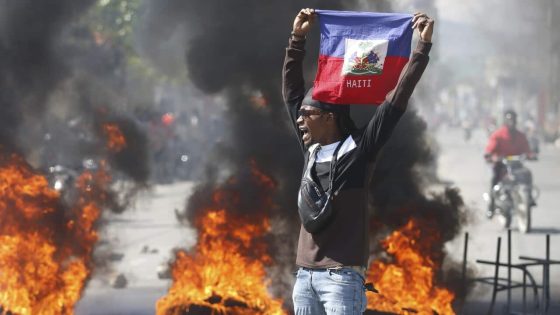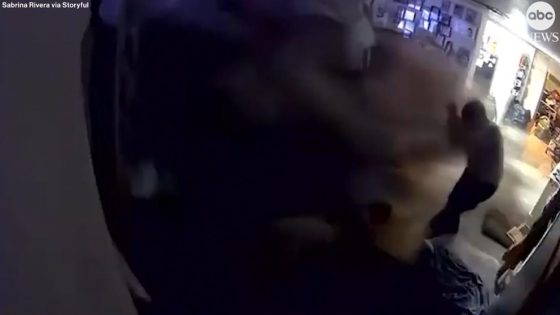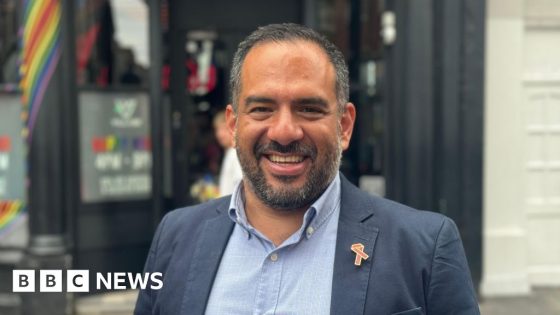Haiti’s capital is largely shut down, with residents only venturing out for essentials, following an attack on a prison that freed thousands of inmates.
Shortly after, authorities declared a state of emergency.
The prison break was part of a new wave of violence sweeping through Port-au-Prince, where armed gangs that control much of the city have wreaked havoc since last week.
However, the recent violence is only an uptick in the turmoil that has engulfed the Caribbean nation for many years.
A brief timeline of the recent turmoil in Haiti
The Haitian government declared a 72-hour state of emergency on Sunday evening after violent clashes in the capital damaged communications and led to a prison escape.
Heavy gunfire caused panic after calls by gang leader Jimmy Cherizier, a former police officer, for criminal groups to unite and overthrow Prime Minister Ariel Henry.
Cherizier heads an alliance of gangs called G9 and faces sanctions from the United Nations and the United States.
Police have clashed with gang members in Haiti’s capital, Port-au-Prince. Source: AP / Odelyn Joseph
Armed groups on Saturday night attacked the country’s largest prison, defying Haitian .
About a dozen people died with only a few of the estimated 3,800 inmates still inside.
Later on Monday, hundreds of people, reportedly escaped inmates, gathered in the capital chanting for Henry to step down, while declaring support for Johnson “Izo” Andre, a leader of a gang linked to the capital’s other main gang alliance, G-Pep.
Schools and banks were closed, and people sheltered in schools, sports venues, gyms and public buildings, often without adequate toilets, health facilities or drinking water.
Pedestrians take cover during clashes between police and gang members in Port-au-Prince. Source: AP / Odelyn Joseph
“This morning the city is paralysed,” Carlotta Pianigiani, a coordinator in Port-au-Prince for the Alima medical NGO, told Agence France-Presse.
“Public transport is practically at a standstill, private vehicles are rare and schools are closed. Some roads are also barricaded.”
She said 15,000 people were displaced over the recent weeks of unrest and that the capital’s largest public hospital suspended operations last week, adding that the situation was “already very tense”.
Where is the Haitian prime minister?
As the latest crisis spiralled, Henry was still out of the country after a trip to Kenya to push for the deployment of a UN-backed multinational police mission to try to stabilise Haiti.
Henry, who was not elected and came to power in 2021 , had previously pledged to step down by early February.
Ariel Henry is a former neurosurgeon who has served as the acting prime minister of Haiti since 20 July 2021. Source: AFP / Simon Maina
He later said security must first be re-established to ensure free and fair elections.
As doubts rose over Henry’s whereabouts amid the violence, a spokesperson for the US State Department said he believed Henry was returning to Haiti.
“We think it’s important that he do so and he be allowed to do so,” the spokesperson said.
Is the Haitian government on the edge of being overthrown?
Haiti, the Western hemisphere’s poorest nation, has been in turmoil for years, and the 2021 presidential assassination plunged the country further into chaos.
No elections have taken place since 2016 and the presidency remains vacant.
Following Moïse’s assassination have since expanded their territory and are now estimated to control most of the capital.
The UN estimates the conflict killed close to 5,000 people last year and drove some 300,000 from their homes, while the fighting has blocked off access to food and medical services.
Gang leader Cherisier, known by the nickname Barbecue, said they are coordinating to oust Henry.
The Haitian government has vowed the security forces would take back control, but they are notoriously weak — kidnapping and other violent crimes are rampant, and gangs are often better armed than the police.
Gangs have warned residents around Port-au-Prince to keep children home, although the Haitian government has stipulated that schools will stay open.
The international response to the crisis
UN Secretary-General Antonio Guterres expressed alarm at the “rapidly deteriorating security situation” and called for more funding for the planned international police mission.
The UN Security Council in October approved an international police support mission to Haiti that Nairobi had agreed to lead, but a Kenyan court ruling has thrown the plan into doubt.
On Friday, Henry signed an accord in Nairobi with Kenyan President William Ruto on deploying the force.
White House spokesman John Kirby told reporters on Monday that the United States was monitoring the situation “with great concern.”
The US also called for its citizens to leave Haiti “as soon as possible” after the recent violence.
The United States, which is home to over a million Haitians, said its embassy would be offering limited operations on Monday while Canada said it would temporarily close its embassy.
Haiti’s neighbours on Monday began shoring up their defences and recalling embassy staff.
The Dominican Republic, which shares the island of Hispaniola with Haiti and last year deported tens of thousands of Haitians back across the border, said on Monday its defence minister was touring the border to supervise progress on a border fence and the “operational readiness of the military”.
Dominican President Luis Abinader did not answer when asked by reporters if he would allow Henry to travel back to Haiti via the land border. He added he would not allow refugee camps for Haitians in the Dominican Republic.
The neighbouring Bahamas said it had called embassy staff back to New Providence, leaving just its charge d’affaires and two security attachés, while Mexico said its nationals should limit themselves to essential transit and stock up on water, fuel and non-perishables.






